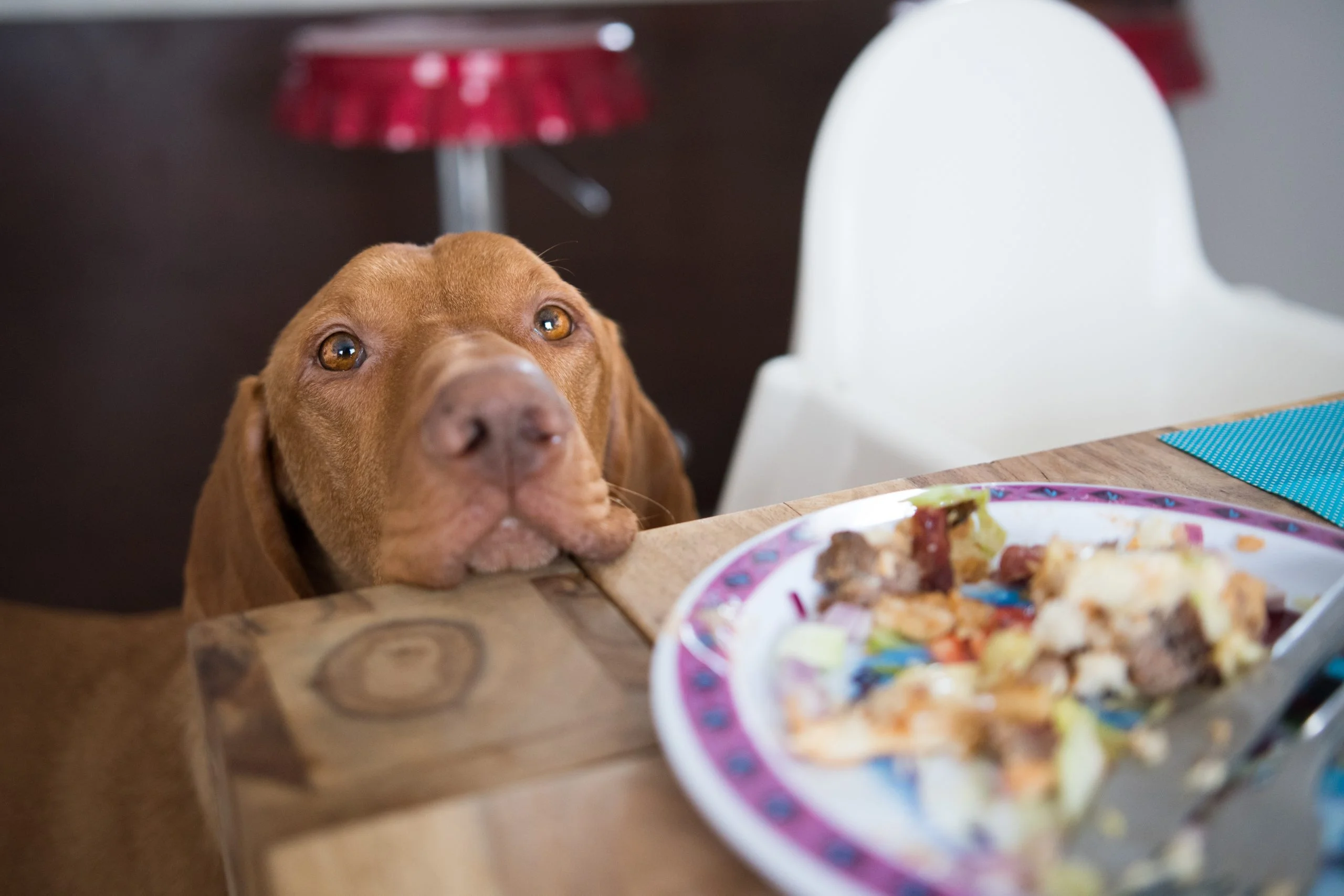
Roasted turkey, mashed potatoes, and pumpkin pie – what’s not to love about Thanksgiving? Along with delicious food and festive traditions, there is also the joy (or stress, for some of us) of spending time with loved ones. In order to celebrate the holidays and keep everyone safe and healthy, it’s important to keep our pet’s care and well-being top of mind.
Here are some important safety tips to remember this Thanksgiving to make sure the holiday season is merry and bright for all members of your family.
Leave (most of) the gobbling to humans.
The crowning jewel of most Thanksgiving feasts is the turkey. With its flavorful aroma filling the house, it may be tempting to share a bite of turkey with our furry friends. Your pet will undoubtedly look at you with eyes of eager anticipation, but is it safe to share? According to the ASPCA, a small piece of boneless and well-cooked turkey is generally a harmless treat for our animal friends. But these turkey treats should be limited; large portions or those with bones or fatty skin can cause digestive issues and even pancreatitis – a life-threatening condition for many pets. To be safe, we recommend treating your pet with food made just for them!
Keep the goodies on the table.
Stuffing, rolls, and pies – oh my! While for us the impact of indulging on these delights may be a long nap or expanded waist band, there could be a harmful outcome for your pet. Animals have a difficult time digesting fatty foods and ingredients found in many Thanksgiving favorites. Moreover, other foods on your holiday table can be toxic to pets, such as chocolate, onions, garlic, raisins, sage, artificial sweeteners, and alcoholic beverages. So, keep those goodies on the table (and to yourself) and continue to monitor unattended dishes for sneaky scamps looking for a snack.
Click here for other foods that may be harmful or toxic to companion animals. If you suspect your pet has eaten a harmful food or substance, note the amount and contact your veterinarian or call the ASPCA Animal Poison Control Center at 888.426.4435.
Let’s talk trash.
After hours of cooking, breaking bread, and cleaning, the trash is usually just as full as everyone’s tummies! Our pets can sniff out tasty morsels from a mile away, which is why it’s important to keep the garbage secured and inaccessible at all times. Our garbage cans often contain turkey bones, vegetable scraps, and other items that may be harmful to our animal friends. So, while you’re gathered around watching football or zooming in and out of the kitchen between plays, be sure the trash is tied up and tucked away from curious noses.
Preventing a decorating disaster.
Often, table settings and holiday décor are just as important as the meal for those aspiring to be the next Martha Stewart. When considering your perfect ambiance, remember that certain types of flowers and plants—such as amaryllis, ferns, and hydrangeas—are dangerous for pets! Save you and your pets some trouble by making sure floral arrangements, candles, and other holiday decorations are out of paw’s reach.
Get your turkeys in a row.
Before the giving spirit extends to guests sharing nibbles with your pet, make sure everyone knows what is and isn’t safe to share. It’s a good idea to provide your guests with treats designated for pets in case it’s impossible for them to resist your buddy’s subtle (ahem) pleas for a treat.
Also, remember that the holidays can be stressful for our pets too. Meeting new people and having a house full of family and friends can cause our animals to feel anxious and overstimulated. Always be an advocate for your pet around children, other animals, and during introductions. Additionally, give your pet breaks from the festivities, and make sure they have a quiet, safe space away from the celebration that they can retreat to when needed.
Click here for additional ways to relieve your pet’s stress – during the holidays and throughout the year.
Staying home for the holidays.
With people coming in and out of the house throughout the day, there is a higher likelihood of your pet darting out the door in a flash – and you may not even notice! Keep an eye on your pet and consider kenneling them or keeping them in a closed room until the whole party has arrived. Be sure your pet has updated identification tags and a microchip ID in case they manage to make a run for it; doing so will give you the best chance of being reunited with your furry friend and keeping them safe.
Over the river and through the woods.
Bringing your animal friend to Thanksgiving dinner? Preparing your pet for the trip by packing their medications, food, and toys; obtaining health certificates; and purchasing safe and proper travel crates can make all of the difference.
If you’re driving to your destination, it’s important to safely restrain animals whenever your vehicle is moving in case of an accident. Likewise, you should avoid leaving your pet in an unattended car, even for a short period of time. When boarding during the holidays, speak with your veterinarian first and make sure your pets are current on their vaccinations to protect against kennel cough, canine flu, and other illnesses.
With a bit of forethought before you “paws” to give thanks, the holiday season can be fun and safe for everyone, including our beloved animal friends. Warm and happy holidays from the staff, volunteers, and the animals at the Dumb Friends League!
